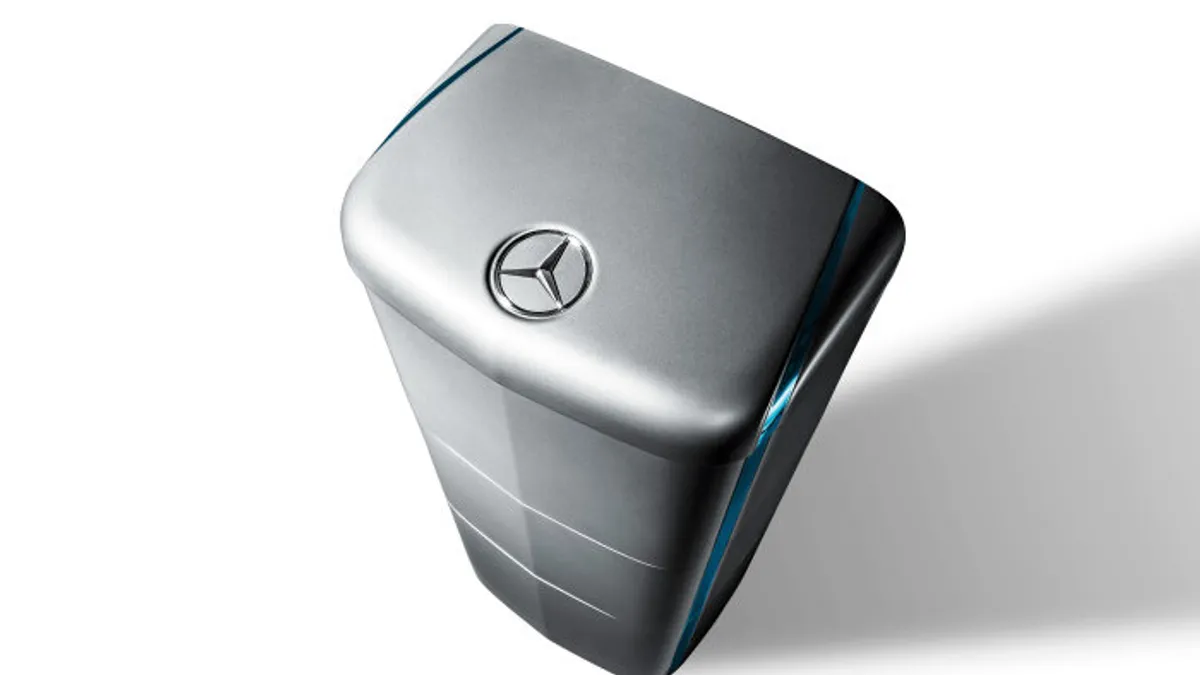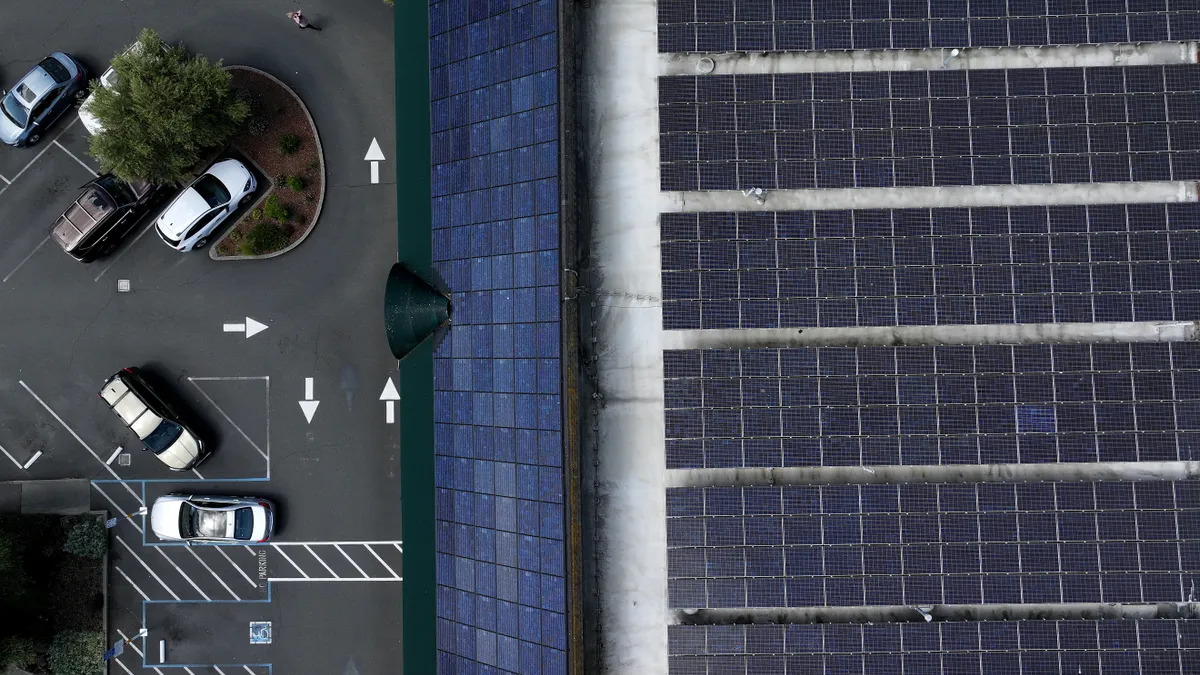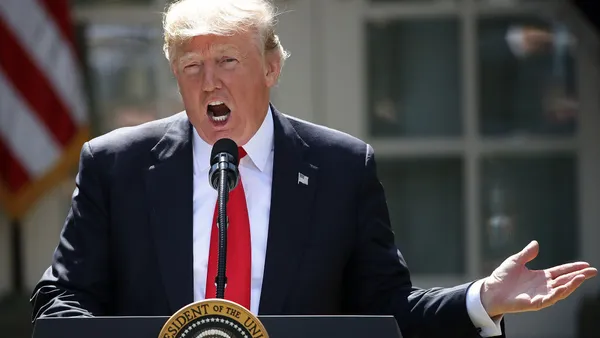Dive Brief:
- German automaker Mercedez-Benz is launching a U.S. stationary energy storage arm and plans to offer its first battery products to residential, commercial and utility consumers in early 2017.
- The newly-formed Mercedes-Benz Energy Americas, LLC will be headed by Boris von Bormann, the former CEO of the U.S. branch of German energy storage company Sonnen.
- The company's first offering will be a 2.5 kWh residential battery module that can be combined up to 20 kWh and used for backup power and solar self-consumption, according to a release.
Dive Insight:
Mercedes-Benz entered the stationary storage market last year in its native Germany, and now the venerated automaker is tapping another German storage expert to head its push into the U.S. stationary storage market.
Boris von Bormann will lead the Mercedes-Benz Energy Americas after leaving Sonnen, which specializes in battery storage with peer-to-peer power trading capability.
Mercedes said its proprietary battery technology will allow consumers of all sizes to smooth peak energy consumption, integrate distributed solar energy and access backup power during outages.
"Developed for the demanding use in the vehicle, the Mercedes-Benz energy storage units meet the highest safety and quality requirements," the company said in a release. "They are based on the same technology that Daimler has already used thousandfold in electric and hybrid vehicles since 2012."
In the release, von Bormann said that the Mercedes products will not only save consumers money, but "combine the advantages of electric vehicles and energy solutions into one holistic platform."
That strategy puts the company in direct competition with residential storage companies like Sonnen and Tesla, which unveiled its own integrated solar roof and battery to combine with its electric vehicles last week.
Neither Tesla nor Mercedes released operational specifications for their batteries like cycle life or degradation rates, so it remains unclear what type of performance homeowners can expect. But both offer warranties for their car batteries.
Mercedes guarantees its EV batteries for 10 years or 150,000 miles, whichever comes first, while Tesla offers an eight-year, "unlimited mile" warranty.
A survey of Tesla owners by EV advocate Plug In America last year showed that the Model S generally loses about 5% of its capacity within the first 50,000 miles of driving, but the jury is still out on how its battery and others will perform as they near the end of their warranty periods. Those details are closely guarded by most storage companies.













